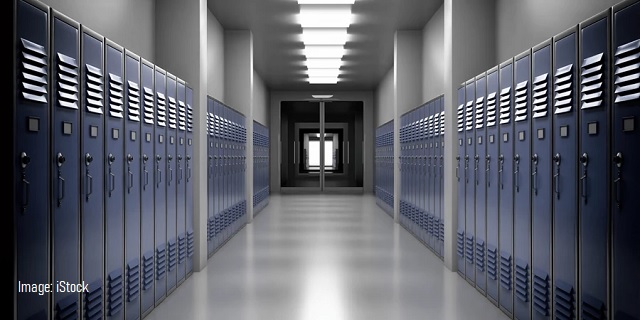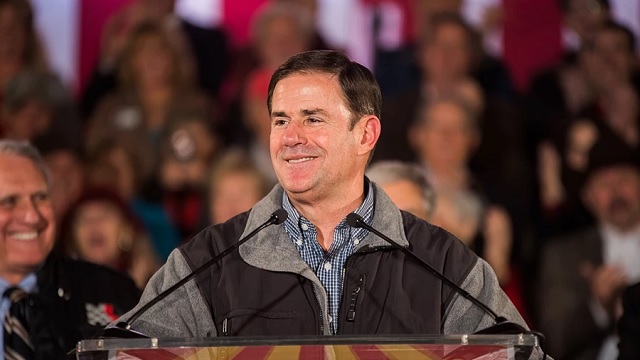The Root of Today’s Worldwide Education Problem Is Staring Us in the Face

From Israel to America and lots of places in between, government schools are failing. This should not surprise us.
“Our schools,” reports a knowledgeable observer, “are producing ignoramuses.” The average graduate, he explains, “does not know how to read critically, write expressively, or debate intelligently and politely.” Meantime, the unions are opposing huge, proposed increases in beginner-teacher salaries because, instead, they want higher pay for teachers with seniority, regardless of individual performance.
Are we talking about America here? No, though Americans can sadly and credibly claim similar circumstances. What you just read comes from writer Amotz Asa-El in the July 29-August 4 issue of The Jerusalem Post. In his article titled “How can Jewish Schools be Bad?”, the country whose schools he excoriates is Israel.
For more than 2,000 years, a thirst for learning has been a core element of Jewish culture. Asa-El writes,
So obsessed with education were the Jews that Jewish law decreed that a town that did not give its children a teacher must be excommunicated. And so unique did education make the Jews that a French monk noted in the 12th Century that “a Jew, however poor, if he had 10 sons would put them all to letters…and not only his sons, but his daughters” [too].
Education was a legacy, a quest, and a supreme value that went with the Jews wherever they wandered. That’s how the penniless immigrants who proceeded from Europe’s shtetls [Jewish enclaves] to the Lower East Side’s sweatshops produced by 1937 half of New York’s doctors and two-thirds of its lawyers.
One could reasonably assume that such a deeply rooted heritage would produce good public schools in a country defined by its Jewishness. But instead, says Asa-El, they are a “disgrace.” Not only are they academically bad, they also “nurture indiscipline.” He points out that it “is most commonly reflected in students’ total disregard for their teacher’s very presence in the classroom.” Moreover,
In worse cases, this indiscipline breeds vandalism during field trips, not only in Israeli parks, but even in places like Birkenau [a notorious Nazi concentration camp], where Israeli students carved their names into barracks’ walls.
The performance of American public schools, on average, is nothing to write home about either. Their disgraceful shortcomings are well-known and hardly need to be recounted here. You can check the Education section of Just Facts for the details. But guess what? I’ve heard the same complaints in almost all the 87 countries I’ve visited over the years. Even people who think their local public school is OK will decry the lousy and expensive outcomes in everybody else’s public school.
If a chain of private restaurants served bad food at high prices, it would be history in a hurry. Better eateries would spring up in their place, and customers would welcome such “creative destruction” as perfectly natural and beneficial.
Even in education, we can find excellence. Private schools and home schools are generally flourishing. These are the schools in which no parent or child is trapped by zip code. No unhappy customers are forced to patronize these options year after year. Distant bureaucracies and self-serving unions cannot bully their way into the classroom. Teachers are freer to get the job done. Fractious, distracting, intractable controversies are avoided because everybody pays for what they get and gets what they pay for—or they take a walk.
Public schools are government schools. Their common denominator is politics. Who in their right mind would even think to suggest that to improve restaurants, we should assign people to eat at restaurants by geography or zip code? Would a bad restaurant improve if we threw more money at it, rewarded its staff according to seniority instead of merit, or put politicians in charge of its menu? The reality in Israeli schools proves that politics can take even an impressive cultural heritage and trash it in just a few generations.
From Israel to America and lots of places in between, government is not the answer to problems in education. It is the paramount problem itself. Government politicizes education. It foists compulsory unionism on teachers. It rewards mediocrity and frustrates innovation and success. It stifles the very forces of choice, incentive and accountability that produce progress in every other walk of life where they are employed. The answer is more freedom, not more politics and coercion. Why is such common sense so infuriatingly uncommon?
Perhaps government conveniently forgot to teach it to us.
For Additional Information, See:
A New Direction for Education Reform by Lawrence W. Reed
The Spread of Education Before Compulsion by Edwin West
What 17th Century England’s State Church Had in Common with Today’s School Systems by Lawrence W. Reed
The Myth that Americans Were Poorly Educated Before Mass Government Schooling by Lawrence W. Reed
AUTHOR
Lawrence W. Reed
Lawrence W. Reed is FEE’s President Emeritus, Humphreys Family Senior Fellow, and Ron Manners Global Ambassador for Liberty, having served for nearly 11 years as FEE’s president (2008-2019). He is author of the 2020 book, Was Jesus a Socialist? as well as Real Heroes: Incredible True Stories of Courage, Character, and Conviction and Excuse Me, Professor: Challenging the Myths of Progressivism. Follow on LinkedIn and Like his public figure page on Facebook. His website is www.lawrencewreed.com.
RELATED ARTICLE: ACT test scores drop to lowest in 30 years
RELATED VIDEO: Teenage Student Slams School Board for Pushing CRT
EDITORS NOTE: This FEE column is republished with permission. ©All rights reserved.

